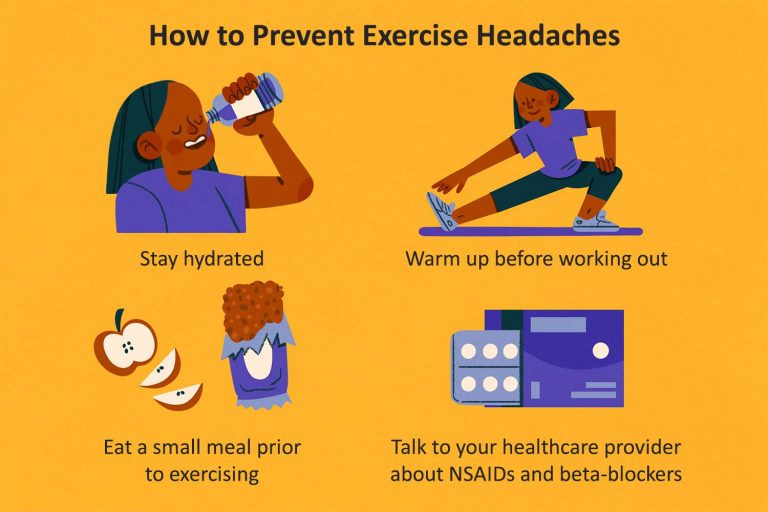Why Can’t I Run As Far Anymore
Your decreased running distance may be due to factors such as age, injuries, lack of conditioning, or health issues. Finding the root cause can help improve your endurance and create a plan to reach your running goals.
Every runner experiences ups and downs in their performance, and understanding the reasons why you can’t run as far anymore is crucial to making progress. By addressing the possible issues and making necessary adjustments, you can gradually increase your running distance and enjoy the benefits of longer, more satisfying runs.
Don’t get discouraged – with the right approach, you can get back to running further than before.
Causes Of Decreased Endurance
As we age, it’s not uncommon to notice a decline in our ability to run as far as we used to. There are several factors that can contribute to this decrease in endurance. In this article, we will explore three main causes: aging and physiology, inadequate training, and health conditions.
Aging And Physiology
One of the primary reasons why you may find it difficult to run as far as you did in earlier years is the natural process of aging. As we get older, our bodies go through physiological changes that can impact our endurance levels. These changes include a decrease in muscle mass, a decline in lung function, and a reduction in the efficiency of the cardiovascular system. These age-related factors can make it harder to maintain the same level of endurance that we had in our younger days.
Inadequate Training
Another reason why you may struggle to run as far as you used to is inadequate training. If you’ve been less consistent with your running routine or haven’t been pushing yourself to improve, your endurance may suffer. Running long distances requires regular training to build up stamina and endurance. Without consistent and challenging workouts, your body may not be able to handle the same level of exertion as before.
Health Conditions
Lastly, certain health conditions can play a role in decreased endurance. Conditions such as asthma, heart disease, and diabetes can affect your body’s ability to deliver oxygen to the muscles efficiently. Additionally, medications used to manage these conditions may have side effects that impact endurance. If you have any underlying health issues, it’s important to consult a healthcare professional to determine how they may be affecting your endurance levels.
In conclusion, if you’re wondering why you can’t run as far anymore, consider the impact of aging and physiology, inadequate training, and health conditions. While it is natural for our endurance to decline with age, consistent training and addressing any underlying health issues can help to maintain and improve your running performance.
Effects Of Decreased Endurance
Decreased endurance can have significant impacts on your overall health and physical abilities.
Impact On Overall Health
1. Decreased endurance may lead to weight gain and increased risk of chronic illnesses.
2. It can affect your cardiovascular health, causing issues such as high blood pressure and heart disease.
Limitations In Physical Activities
1. Reduced endurance can limit your ability to engage in long durations of exercise like running or biking.
2. Simple activities like climbing stairs or playing with kids may become more challenging.
Strategies To Improve Endurance
Strategies to Improve Endurance:
Proper Training Approaches
Implement a structured exercise regimen to gradually increase distance and intensity.
- Include interval training to enhance cardiovascular performance.
- Incorporate strength training to build muscle endurance for long-distance runs.
Nutritional Interventions
Fuel your body with the right nutrients for optimal endurance.
- Maintain a balanced diet rich in carbohydrates, proteins, and healthy fats.
- Stay hydrated before, during, and after runs to support performance.
Consistency And Patience
Reap the benefits of endurance improvement by staying consistent and patient.
- Set realistic goals and track progress to stay motivated.
- Listen to your body and allow for proper rest and recovery between runs.

Credit: www.nytimes.com
Preventing Decline In Endurance
Experiencing a decline in endurance while running can be frustrating. Several factors may contribute to this, such as aging, injury, or lack of training. To prevent this decline, focus on consistent training, adequate rest, and a balanced diet to maintain and improve your endurance.
Incorporating Cross-training
If you are finding it difficult to run as far as you used to, it might be time to introduce cross-training into your fitness routine. Cross-training involves incorporating different exercise modalities into your training regimen to improve overall fitness and prevent overuse injuries. By engaging in activities such as swimming, cycling, or strength training, you can target different muscle groups and reduce the impact on your joints. Adding variety to your workouts not only helps to prevent boredom but also allows for muscle recovery and adaptation.
Balancing Intensity And Recovery
One common reason for the decline in endurance is an imbalance between workout intensity and recovery. While pushing yourself during workouts is important for building endurance, it is equally crucial to prioritize rest and recovery. Overtraining can lead to chronic fatigue, muscle imbalances, and increased risk of injury. To prevent this, listen to your body and give it adequate time to recover between intense workouts. Incorporate rest days into your training schedule and pay attention to warning signs like persistent fatigue, decreased performance, or constant muscle soreness. Maintaining a balance between training intensity and recovery is key to sustaining long-term endurance.
Regular Health Check-ups
Regular health check-ups are essential for maintaining optimal fitness levels and preventing declines in endurance. As we age, our bodies go through natural changes that can impact our athletic performance. It is important to stay on top of any potential health issues or underlying conditions that may arise. By scheduling routine check-ups with your healthcare provider, you can identify and address any concerns before they affect your endurance. They can evaluate your overall health, assess your cardiovascular fitness, and provide guidance on optimal training strategies. Additionally, they can help monitor your nutrition, hormone levels, and identify any potential deficiencies that may contribute to declines in endurance. Prioritizing your health through regular check-ups is crucial for maintaining and improving your endurance as you age.
Seeking Professional Guidance
Seeking professional guidance when experiencing difficulty in running long distances can be crucial in understanding and addressing the underlying causes. Consulting with experts can provide valuable insights and personalized strategies to overcome any barriers preventing you from running as far as you used to.
Consulting A Fitness Trainer
Engaging a fitness trainer can offer personalized training plans tailored to your specific needs and limitations. A professional trainer can analyze your current fitness level, running technique, and overall health to devise a customized program that gradually builds endurance and addresses any weaknesses. Their expertise can help you regain your ability to run longer distances while reducing the risk of injury.
Medical Evaluation
Undergoing a medical evaluation is essential to rule out any underlying health issues impacting your running capabilities. A healthcare professional can conduct thorough assessments to identify potential factors such as respiratory conditions, cardiovascular health, muscular imbalances, or joint problems that may be hindering your performance. Addressing these concerns through proper medical guidance can be pivotal in your journey to improving running endurance.

Credit: quotefancy.com

Credit: www.amazon.com
Frequently Asked Questions Of Why Can’t I Run As Far Anymore
Why Can I Suddenly Not Run As Far?
Your sudden inability to run further may be due to various factors, such as inadequate rest, overtraining, lack of proper nutrition, or an underlying medical condition. Consult with a healthcare professional to determine the cause and develop a plan to improve your running performance.
Why Can I Not Run As Fast Anymore?
You may not run as fast anymore due to aging, decreased muscle strength, or lack of consistent training.
Why Have I Lost My Running Stamina?
Your running stamina may decrease due to lack of consistency in training, improper nutrition, or overtraining. Proper rest and gradually increasing intensity can help regain stamina.
Conclusion
It can be disheartening when we find ourselves unable to run as far as we used to. However, this might be due to various factors such as age, lack of training, or underlying health issues. It is crucial to listen to our bodies, adjust our expectations, and seek professional advice if necessary.
Remember, the journey of running is not solely about distance but also about taking care of ourselves and enjoying the process. Keep moving forward, one step at a time.




